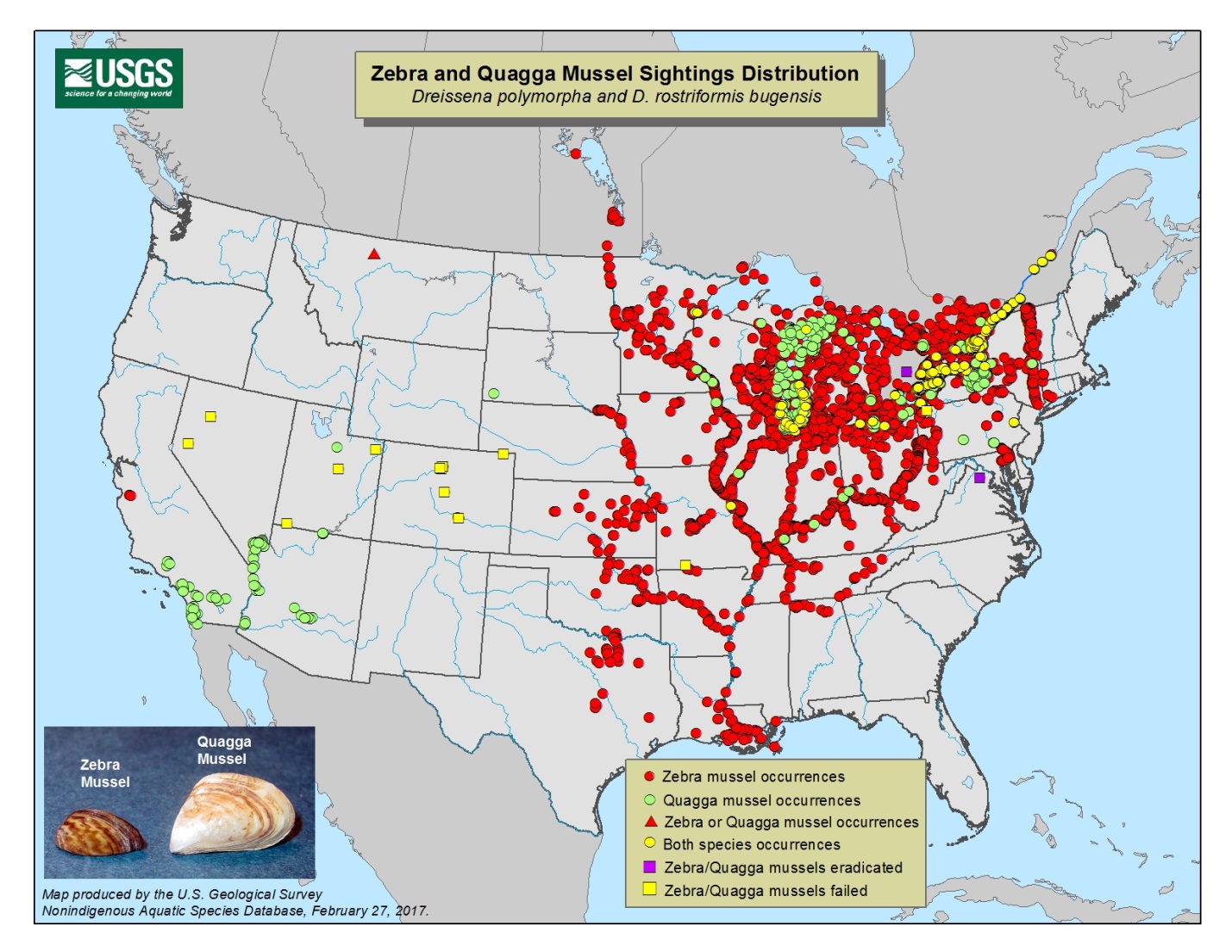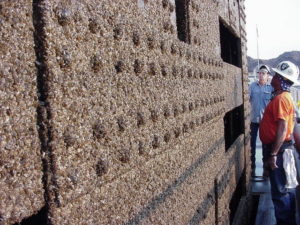If you’re like a lot of environmental professionals working in water, you were probably drawn to the idea of making a difference in your community, and beyond. But, if you’re working in multiple water bodies you also have the potential to put that very water, and your community, at risk.
Part of our work at the Okanagan Basin Water Board has been managing invasive milfoil in our lakes for the past 36 years. We have now changed the way we do business, making sure to take precautions to prevent the spread of other invasive species, including zebra and quagga mussels, recognizing that professionals working in freshwater, including ourselves, are potential vectors.
We are reaching out to our colleagues, who are also working in the field, to join us in adopting best practices to help keep safe the waters we are trying to protect.
THE PROBLEM
Invasive zebra and quagga mussels have been hitchhiking across Canada and the U.S. since the mid-80s, on boats and other non-motorized watercraft, in bait buckets, and more. These mussels, which originate from Eastern Europe, have no natural predators here and will attach to any hard surface, including hip-waders.
Since their arrival they have been transforming ecosystems, causing toxic algae blooms, clogging water intakes, outfalls, and other aquatic infrastructure, and ruining beaches. At this time, there is no proven method to eradicate the mussels once they arrive that doesn’t also cause significant environmental impacts.
The mussels are microscopic as veligers (floating larvae), about the size of a grain of sand. At their largest, they are the size of a thumbnail (1.5 to 2 cm). Each female can produce one million eggs per spawning season. In some regions, with warm water temperatures, they’ve been known to have six reproductive cycles in a season. And, they can live 30 days out of water in damp, cool conditions.
In addition to the damages noted above, the mussels are costing millions to just manage. The Great Lakes spend about $250 million each year to control zebra mussels in their water intakes. As far as we know, BC, Alberta, Saskatchewan, Washington, Oregon, and Idaho are mussel-free. But it’s estimated the cost to the Pacific Northwest would be $500 million annually; $43 million annually to the Okanagan alone. And in the case of Montana, where mussel larvae were discovered in October 2016, (three months after water samples were collected – a delay in testing), we cannot assume we are mussel-free, but we must act as though we are and take precautions.
Manitoba’s Lake Winnipeg tested positive for the mussels in October 2013, followed by Cedar Lake in October 2015. Their headwaters start in the Alberta Rockies. The headwaters of Canyon Ferry Lake in Montana – where one of the positive mussel samples was taken – is within a few kilometers of at least three rivers which feed into the Columbia, one of the only remaining invasive mussel-free river systems in Canada. This proximity places a big responsibility on all of us to ensure we take extra precautions.

PREVENTION – CLEAN, DRAIN, DRY
Here in the Okanagan, our milfoil control operators use aquatic machines to de-root the weed in winter, and cut and remove it in the summer. Initially, once the milfoil was established in all of our lakes, we didn’t worry about spreading it, so we would pull a machine out of one lake and launch it in the next, the same day. Now we are doing business differently. With the looming threat of invasive mussels, machines are pulled out of the lakes and brought back to the shop to be cleaned, drained, and dried. We remove all the plant material and pressure wash the hull, pull any drain plugs, drain and dry bilges, and any other places that retain lake water, and let any absorbent material dry in the sun or in winter, in the shop. We spent more than 35 years trying to manage one invasive species – we don’t want to be responsible for spreading another one.
Don’t move a mussel. We ask all professionals working in freshwater systems to make Clean, Drain, Dry your ‘business as usual’. Please help ‘Spread the message. Not the mussel.’ Talk with your fellow professionals about the need to take preventative measures and help protect our waters.
_______
The Okanagan Basin Water Board and its Okanagan WaterWise outreach and education program have been sounding the alarm about the threat of zebra and quagga mussels since 2012. In 2013, it launched its Don’t Move A Mussel campaign. Learn more about the mussels, the risks, prevention, and more, at www.DontMoveAMussel.ca.

